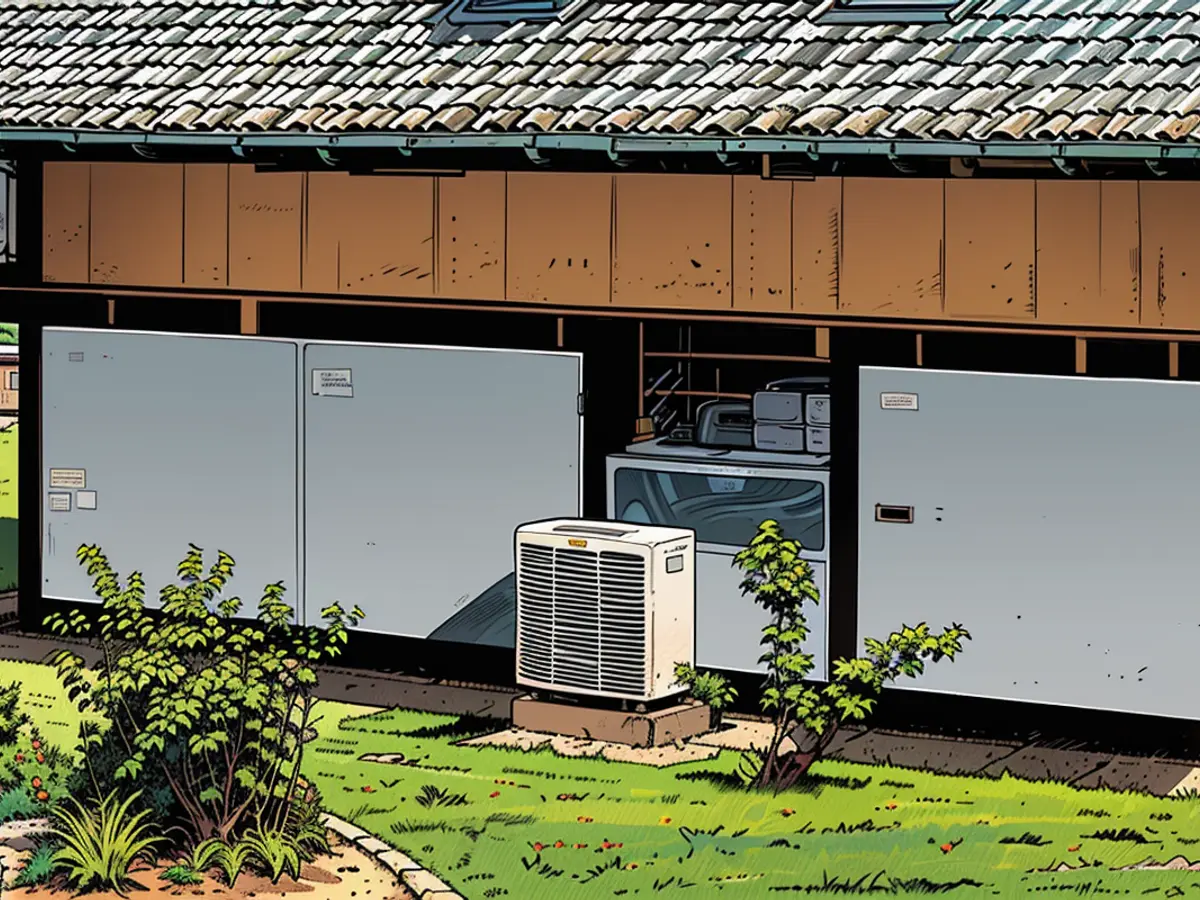Is a air-to-air heat pump a heating option?
She is a climate device that cools. However, an air-to-air heat pump can also heat. Therefore, it is an option for heating systems. However, there are disadvantages.
Extracting heat from outdoor air and warming up the indoor air - that's the principle of an air-to-air heat pump. Heating bodies and piping are no longer necessary. A significant advantage: An air-to-air heat pump costs significantly less than the commonly known air-water heat pump, and it is also subsidized.
"Many people are currently looking for heating alternatives, and technically speaking, it is an option," says Stefan Materne from the energy consulting of the Consumer Center. However, there are some things to consider. The devices are mounted directly on the facade, and at least one device is required per living unit, possibly more.
Noises and no hot water
The pumps make noises, both outside and inside. In addition, a draft is created during operation - this can be unpleasant and stir up dust particles in the rooms.
Moreover, warm water is not available with an air-to-air heat pump. Water heating must then be done, for example, via electricity. And the air-to-air heat pump also requires electricity. "For example, for a new building with several heat pumps and water heating via electricity, a high electrical connection capacity is required," says the energy expert. "You should therefore first ask the power supplier if it is available."
The cooling function of the pump in the summer consumes even more electricity. In addition, the device needs regular maintenance, and the filter needs to be replaced.
Only sensible in individual cases
The decision for an air-to-air heat pump for heating depends on various factors, according to Stefan Materne's summary. They should therefore only be used in well-insulated objects. The smaller the heating or cooling output, the smaller the device and the lower the investment and operating costs.
It should also be clarified, for example in an owner-occupied apartment, whether it is acceptable to mount devices on the facade. And whether the noises directly at the house bother Neighbors.
Costs should be weighed before making a decision. "You switch to the fuel electricity - and it is expensive," says Materne and advises getting impartial advice.
- The Heating Law encourages the use of energy-efficient devices like air-to-air heat pumps to reduce CO2 emissions.
- KfW, a German development bank, provides subsidies for energy-saving measures, including the installation of air-to-air heat pumps.
- Raw Material Oil and even natural gas are not the only options for heating; energy efficiency and cost savings can be achieved with alternative methods like heat pumps.
- Consumer Centres advise consumers on energy policy and offer guidance on the benefits and drawbacks of using air-to-air heat pumps for heating.
- The high oil price and rising electricity price make it crucial for consumers to consider alternative heating methods, such as heat pumps, that can contribute to long-term energy savings.
- Energy consultation services, like those offered by the Consumer Center, can help protect consumer interests by providing unbiased advice on power supply and the associated costs.
- Despite their advantages, such as lower initial investment and energy efficiency, air-to-air heat pumps may not be suitable for all consumers, as they require careful consideration of factors like noise levels and surrounding infrastructure.
- Heat pumps and alternative heating methods are essential components of a broader energy strategy aimed at reducing reliance on fossil fuels and promoting sustainable living.







